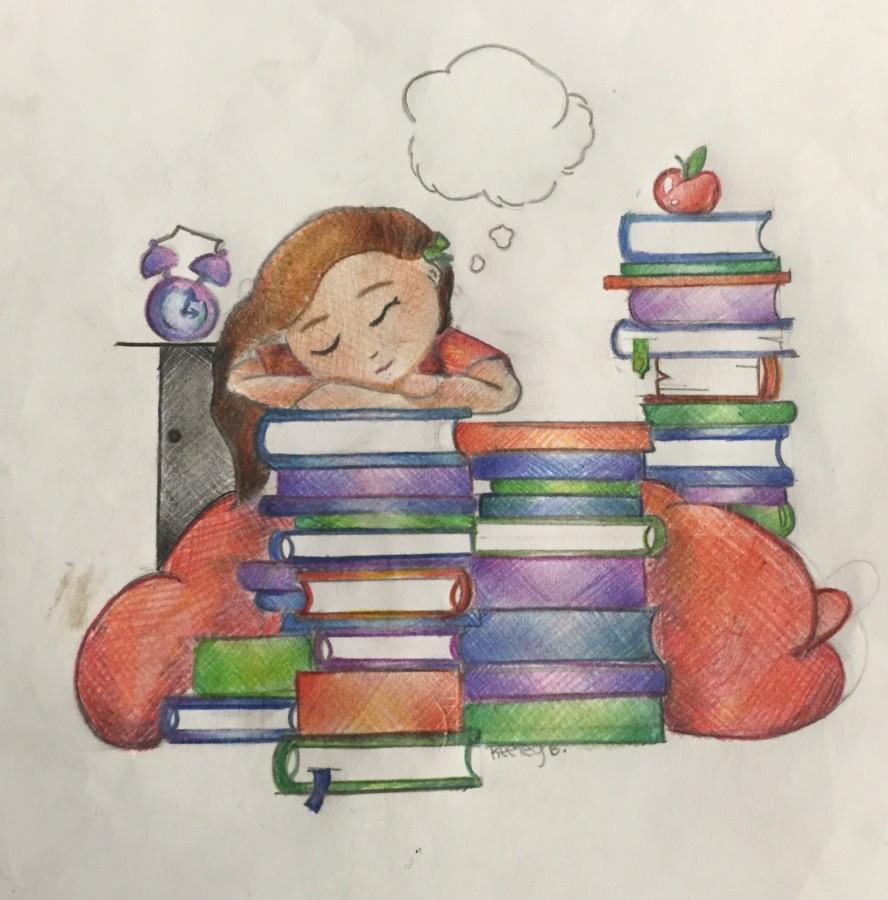GCAA Student Sleep Study
Illustration by Keeley Barket
April 23, 2015
With end of course exams, map testing, and finals approaching, sleep is a very important factor to studying. Teens are recommended to get around 8-10 hours of sleep each night to be able to perform at their highest.
Sleep doesn’t just give your body the chance to unwind and recharge, but also improves your ability to learn and remember information. Sleep deprivation may limit your ability to learn, focus, and/ or retain information. While you sleep, your brain processes information from that day into memories and if you are sleep deprived, it will make things a lot harder to remember.
In a poll with 36 students (18 middle schoolers and 18 high schoolers ) about their sleep habits, two middle schoolers and one high schooler said that they go to bed around nine. Three middle schoolers and four high schoolers said ten, two middle schoolers and six high schoolers said 11, three middle schoolers and Three high schoolers said 12, while eight middle schoolers and four high schoolers said they go to sleep later than 12.
This shows that the majority of the middle schoolers surveyed get around seven or less hours of sleep each night while high schoolers get nine or less hours of sleep.
In an interview with Rebekah Stern about her sleep habits, she said that she goes to bed around 10-10:30pm on weekdays, and wakes up around 6am. However, it normally takes her from 15 minutes to two hours to fall asleep.
“Light from anything keeps me up, stress keeps me up, anything that works my brain keeps me up.” said Stern.
Sleep deprivation can have many damaging effects on you. Insomnia is the inability to get the full amount of sleep your body requires to perform at its highest ability and feel rested. During night time, make sure your room is quite, dark, and cool. Noise, light, and heat can all interfere with sleeping. Avoid naps and stick to a normal sleep schedule. Avoid activities that cause stress before bed as well and shoot for the same bedtime each night to help improve sleep.
In conclusion,the best things for students to do before the test is to get a good night of sleep. Cramming might actually not be the solution to memorization. Instead, a good 8 hours of rest should allow all the information learned to stick in your brain, while also resting your body for the day ahead.










